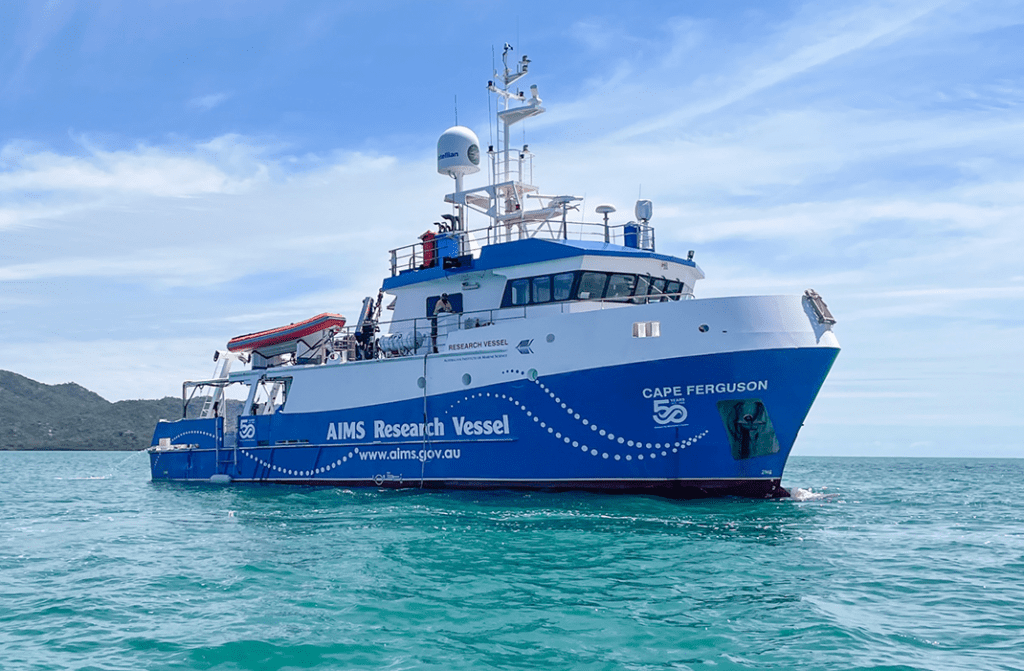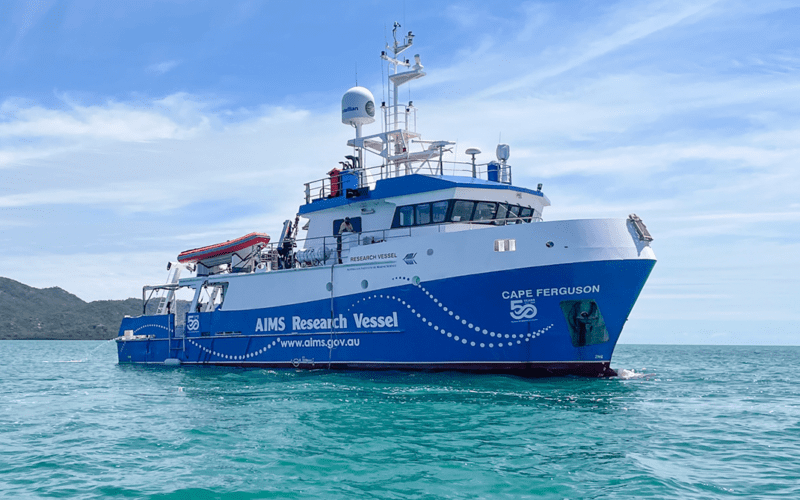(TOWNSVILLE, Queensland, Australia) — The Australian Institute of Marine Science (AIMS) has selected Seattle-based Glosten and One2three Naval Architects to design its new state-of-the-art research vessel. The Glosten-led team includes One2three from Sydney and Maritime Survey Australia (MSA) from Melbourne.
The new vessel will be bigger and more capable than its predecessor, with a larger working deck, room for more scientists on board, and the ability to act as a multi-technology and sensor platform, coordinating a range of autonomous systems. The design team will produce three concepts for consideration by AIMS, including multi-hulled options.

“Our research vessels are integral and essential to Australia’s marine research capability, giving our scientists access to the diverse habitats that make up our remote and extraordinary tropical waters and enabling them to conduct experiments at sea,” said AIMS CEO Dr. Paul Hardisty.
The new research vessel will replace R/V Cape Ferguson, which joined AIMS’ research fleet in 2000 and has been the workhorse of AIMS’ field research and monitoring programs in northern Australia. It has typically traveled more than 15,000 nautical miles annually, with more than 270 days at sea each year, but is now at the end of its operational life.
“Integrating requirements of the ocean science community with accepted maritime practice has been a key to Glosten’s success as research vessel designers. By partnering with One2three and MSA, we’re adding invaluable multi-hull experience to the team, as well as a deep understanding of Australian regulations and shipbuilding. We are confident that this is the right group to ensure AIMS’ vision is realized,” said Glosten President Morgan Fanberg.
The collaborative design process is slated for completion by June 2024.
– Glosten

